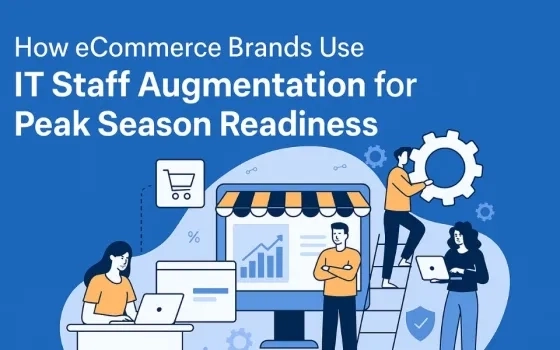The method of shopping in the last decade has been completely challenged, especially in the millenniums. Using the current technology, social media sites, online e-commerce stores, review sites, we can easily research, find, compare and purchase products within a jiffy. The 3rd decade of this 21st century is going to be highly competitive in the e-commerce world, thus you need to take every step to stay ahead. But how can you leverage this process to make more sales?
By gaining the customers’ trust.
But how to gain customers’ trust?
Using Social proof. Social proof is a reliable & effective ally for e-commerce businesses, which can increase trust, & awareness of your brand among the customers and convert them into regular patrons. In this article, we will tell you about all the aspects of social proof in the e-commerce industry and how you can use it for your online business.
Social Proof:
Social proof is based on the tendency of humans to adapt others’ opinions, behaviours, and actions. Do you know that most people get influenced by social proof in one way or another? Consider these real-life scenarios:
- A product you are willing to buy has been endorsed by an expert in that regard – if they say it is worth buying, will it be?
- The new restaurant in your street has a long line of customers waiting outside – this shows the demand and thus you even want to join the queue, even more, assuming that the food & customer service must be great.
- A new gadget that you want to buy has more than 100 5-star ratings from authentic, like-minded, verified buyers – now you can definitely trust the product.
A huge appeal of a product by a lot of consumers boosts its demand. Social proof in e-commerce validates the choice. It assures the customers that the product is a value for money, by showcasing the experience of others as proof.
Social Proof Principles:
There are 4 main principles of social proof:
1. Uncertainty:
When a customer is baffled, an unsure person went to others to know their perspective for making a decision. This uncertainty which is quite common in e-commerce stores activates the need for social proof.
2. Similarity:
A person who is not sure about a decision he needs to make is likely to adopt the behaviour of likewise people. There are factors like age, gender, physical appearance, experience etc. which can influence or motivate the use of social proof.
3. Expertise:
If a person is acquainted with a product, situation, or service, then the social proof power becomes even greater.
4. Number:
The number of people who are considering something “right”, the more it becomes validated for the person considering this decision. It has been found that social proof works best when the proof is provided by behaviours or action of multiple people.
Importance of Social Proof in the E-commerce industry:
You must have heard of instances, a customer made an order online, awaited for a few days, and when it wasn’t as per his expectations. As the high street shopping trips stalled once again, the way to buy online has increased. But the experience is not always good.
In online shopping, customers can’t see, feel or try apparel before purchasing it, thus they need assurance before making a purchase. How to do this online? By providing real photos, feedback, or reviews from the other real customers.
No marketing strategy is better than mouth publicity. A happy customer is the best promoter of your brand. The social proof principle has become one of the most persuasive and effective methods of influencing a user for buying a product. Products with taglines such as “90% dentists recommend X toothpaste” or every “3rd US citizen loves Y product” can significantly increase the chances of purchase.
So, is social proof really effective? Actually yes! It acts as a bridge which is building trust between your brand and the customers through reviews, ratings, and other forms of User-generated content (UGC). In the e-commerce industry, there are multiple ways of implementing social proof.
Social Proof Types in E-commerce:
There are many different types of social proofs but the major ones are 3 that we will be discussing:
Reviews and Ratings:
Do you know 88% of the online customers trust user reviews just like personal suggestions? But a single review is never enough. On average, a customer reads 10 online reviews before making a purchase. Thus, your primary focus is to collect genuine and positive reviews as much as possible.
In your marketing practices as well, you can use positive reviews and ratings as social proof. For instance, if you are having multiple 5-star ratings, then showcase this on a landing page too.
Another method of advantaging social proof is using a popular review platform such as TrustPilot, you can either use its API to showcase reviews or just include an icon of the average rating.
Fake Reviews:
Fake reviews can fracture the backbone of social proof. In the last year, the popular e-commerce giant Amazon was in the controversy of fake reviews. BBC reported that in some cases, there is a huge increase in the usage of one-star reviews by independent sellers to harm their rivals, on the other side there is also an increase of fake five-star reviews of a product.
Regardless of its positivity or negativity, a fake review can always harm the authenticity of your brand, it can even destroy the trust between you and your customers. Many customers will be on the lookout for false reviews, thus you must filter and remove any unverified reviews.
User-generated content:
User-generated content or UGC is very memorable, trustworthy and also free social proof. It is highly effective in meeting user expectations. When the users who are outside of your organization create and publish content related to your brand then it is considered as user-generated content. It is organic & authentic and covers a wide range of formats such as reviews, hashtags, photos, and videos.
It also includes customers who are sharing their experience on their social media profiles and tagging you in their posts. This content has become one of the most trusted and effective resources for brands to leverage. For leveraging UGC, you have to make it possible for the customers to share their content with you easily. If you ask them for a review, make sure it is quick and motivate them for sharing a photo as well.
You can also run campaigns or competitions for encouraging customers to share their content. In return, you can provide them with a discount code, promo codes, loyalty scheme etc.
Testimonials:
Testimonial is a detailed review of the full customer experience and turns out as a brilliant marketing way which you can advantage across different social media platforms, product pages, etc. Testimonial videos are more persuasive than the written content. It demonstrates how a product changes the life of the owner. This is a social form, worth investing in.
How to use Social proof on your e-commerce store?
On HomePage:
The HomePage is the digital storefront of your site, thus always display the best social proof on your homepage for inspiring and influencing site visitors. Showcase the best reviews on the centre of your homepage.
Don’t ever hesitate to ask for a review from a customer through a post-purchase e-mail. Customers get more confidence when they see other people have a positive experience. Also promote all-important, above-mentioned UGC on your important landing pages.
On Product Pages:
There are multiple ways of leveraging social proof on the product pages including:
· Displaying the number of people who have purchased that item:
Numbers play an important role in the life of a human being. If you display how many times the product has been purchased, it will not just create an emergency but the users will also get influenced for making a purchase.
While using this method, make sure that the numbers are true. In case you don’t have adequate numbers then you can display benefits such as “Delivery within two days or free delivery above $200”.
· Showcase best selling products:
Showcase your best selling products which have been the most popular among your customers. It is a very common feature that is used in e-commerce sites such as Amazon.
· Promoting Customer Reviews:
Customer reviews are generally the last feature of a product page. You should save the efforts of your customers in scrolling and instead display the reviews higher up the page, just below the product specifications. The users will be more likely to read and engage with reviews if they are just above the fold.
· Suggestion of similar products:
“Recommended for you” is another common tactic used by e-commerce retailers for increasing sales. Analytic tools such as Google Analytics can help in knowing what your customers are interested in.
· Display visual UGC:
Do you know that customers are 6 times more likely to purchase a product if they find social media pictures on a web page? Yes, it is UGC. This nifty technique is not only ideal for your homepage but can also be used across your product pages.
In the checkout process:
· Stay connected with your converted customers:
It is the wish of the business owner to retain their customers/clients and turn them into regular patrons. The checkout page is a great place to do that. You can display a section such as “People who bought this item also bought…”
The customers will go through those recommended products, which can lead them to make further purchases without being distracted from the current purchase.















